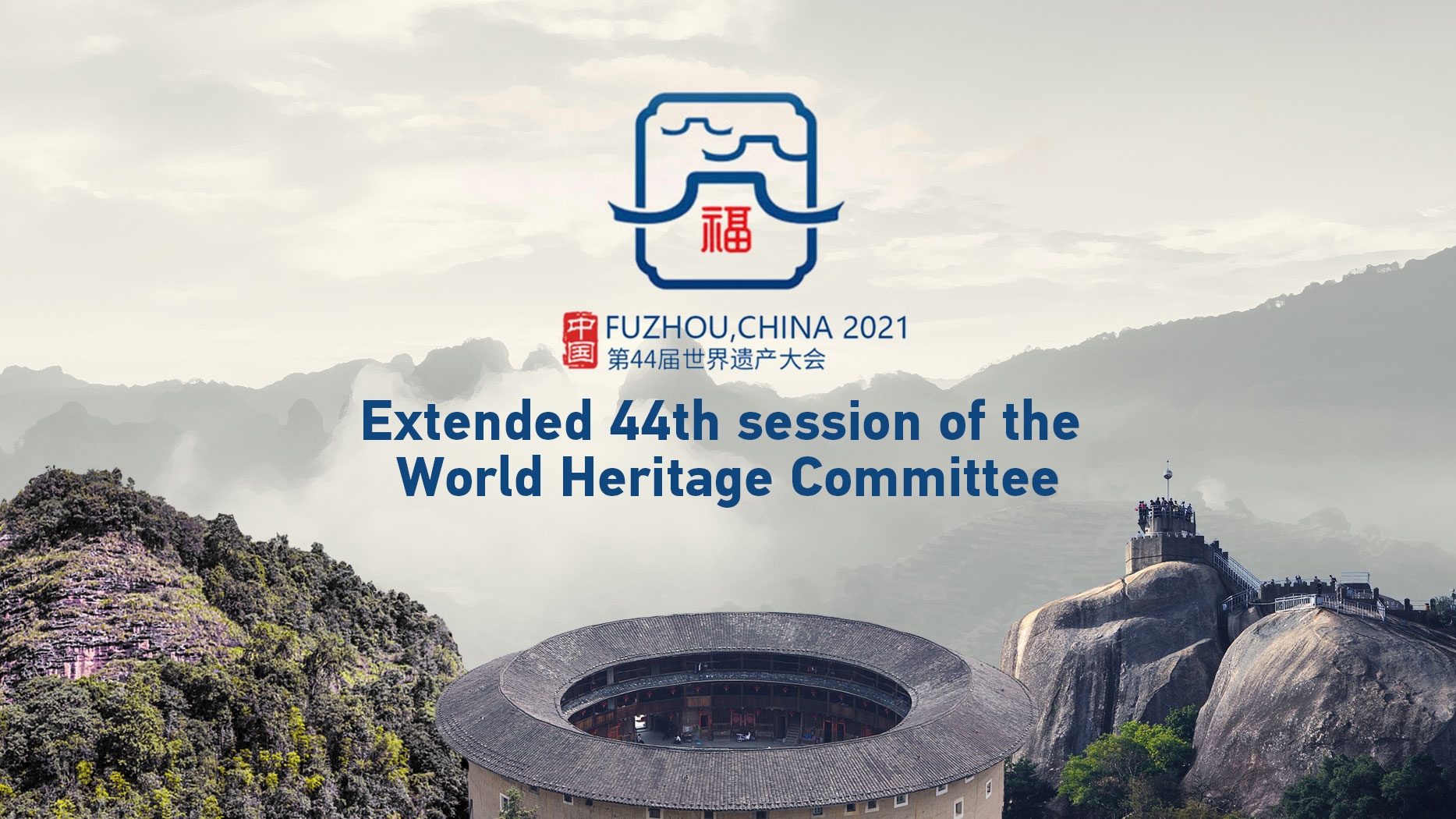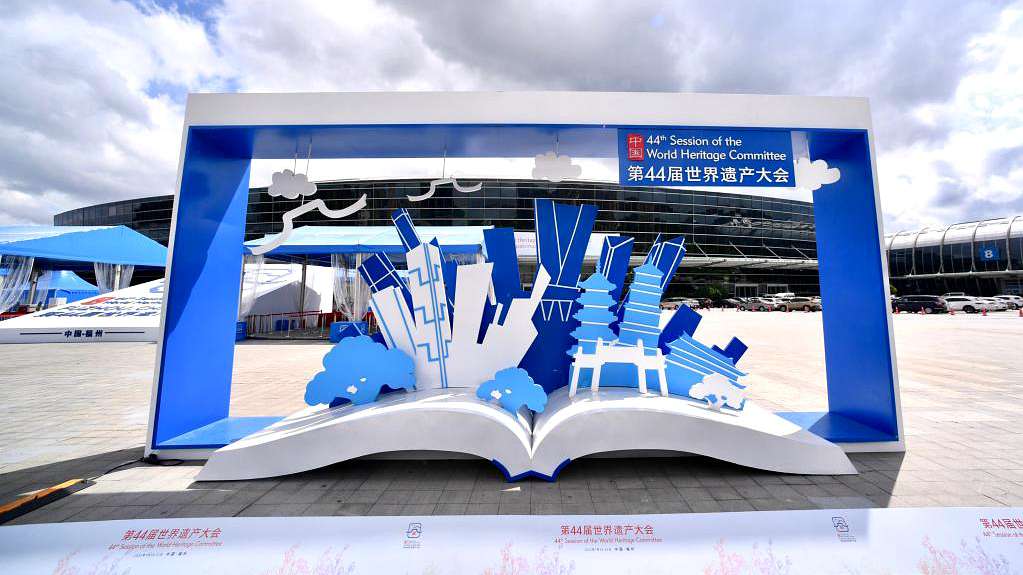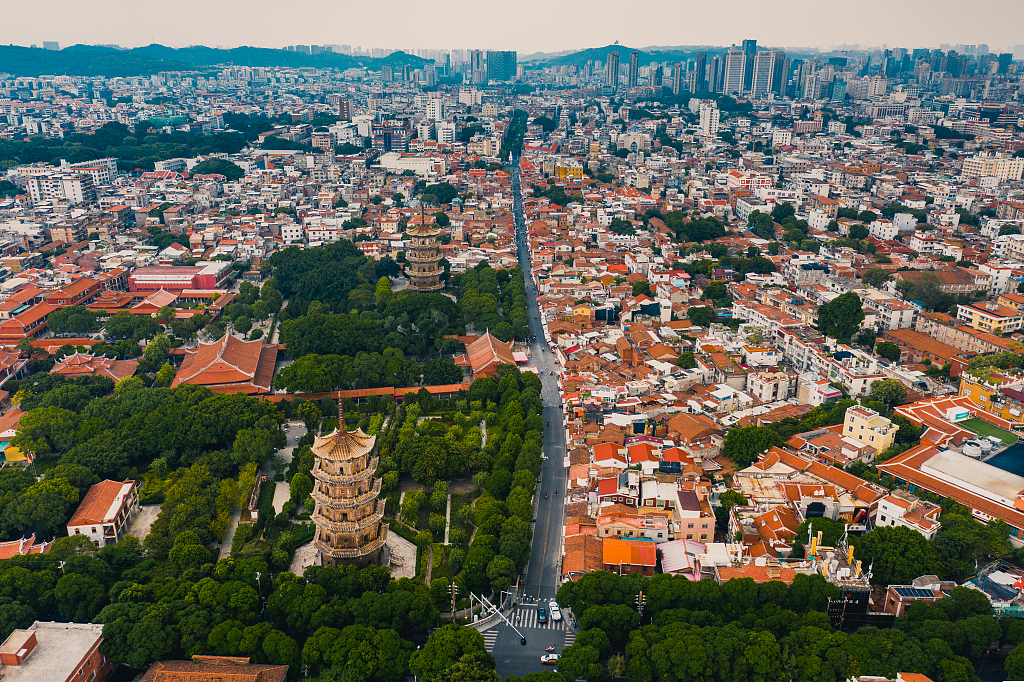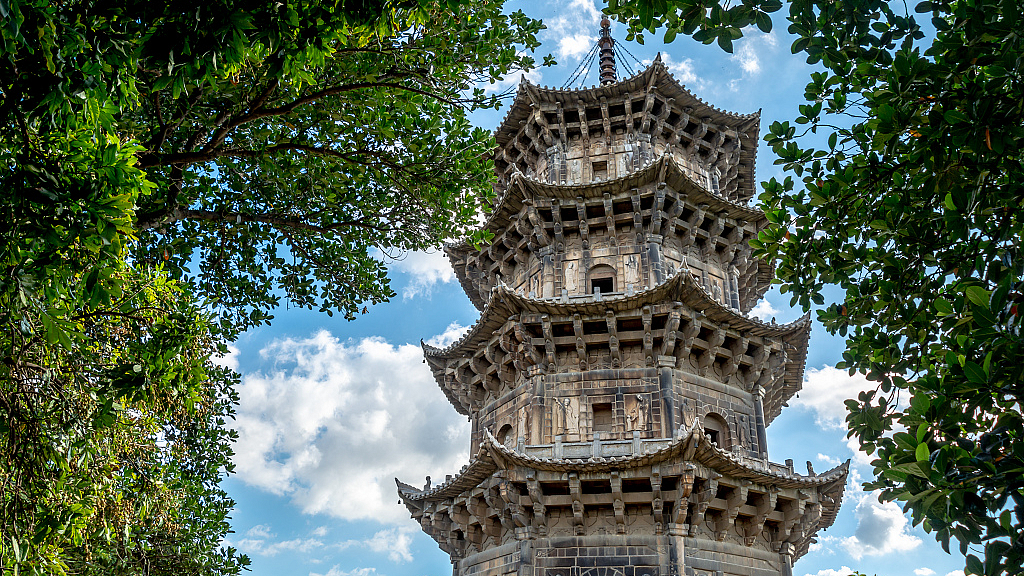Cultural Events
Home >> Cultural EventsExtended 44th Session of UNESCO World Heritage Committee Kicks Off in Fuzhou, SE China
Source: CGTN | 2021-07-17 11:29 Click:

The extended 44th session of the World Heritage Committee kicked off in Fuzhou, capital city of southeast China's Fujian Province as the opening ceremony was held on Friday night at Fuzhou Strait Cultural Art Center.
This year's session, organized by UNESCO in cooperation with the host country – the People's Republic of China – is chaired from Fuzhou by Tian Xuejun, Chinese vice minister of Education and president of the Chinese National Commission for UNESCO, with online meetings taking place from July 16 to 31.
It is for the first time for the World Heritage Committee to hold the annual meetings virtually, and all participants as well as the general public can follow the daily working sessions through live streaming platforms on the official website.
The 44th edition, postponed from last year due to the COVID-19 pandemic, will be extended to 15 days to combine the work foreseen for both the 2020 and 2021 meetings.

The square of Fuzhou Strait International Conference & Exhibition Center, the main venue for the 44th session of the World Heritage Committee of UNESCO, in Fuzhou, capital of southeast China's Fujian Province, July 15, 2021. /Xinhua
The Committee will review 45 new entries for the World Heritage List and examine a total of 258 reports on the state of conservation of the sites already inscribed on the list.
In addition to the online meetings, a series of on-site seminars and activities are slated to be launched at the main venue for the event, Fuzhou Strait International Conference & Exhibition Center, and across the city.
The seminars will cover various topics such as World Heritage education for the future, research and protection of the heritage of the Maritime Silk Road and space technology facilitating the sustainable development of world heritage.
A special exhibition, comprising three parts, will be unveiled to the public at Fuzhou Strait Cultural Art Center, presenting diverse landscapes of the World Heritage sites across the globe and the fruitful results of safeguarding the cultural and natural legacies shared by all human beings.

Wuyi Mountain in Fujian Province was inscribed into UNESCO's World Heritage List in 1999. /CFP
Quanzhou's application on the agenda
During this year's session, the ancient port city of Quanzhou, about 180 kilometers from Fuzhou, will be assessed for World Heritage status, as China proposed the item of "Quanzhou: Emporium of the World in Song-Yuan China" to the Committee earlier in 2019.
Quanzhou, also known as Zayton overseas, was one of the world's largest and busiest ports during the Song (960-1279) and Yuan (1271-1368) dynasties, and now is home to more than eight million inhabitants, as well as numerous cultural relics and religious sites, such as Qingjing Mosque, one of the oldest mosques in the country, and the Twin Stone Pagodas at Kaiyuan Temple, which are the highest pair among China's stone pagodas.
Located in the south of Fujian Province, the ancient city is believed to be the starting point of ancient Maritime Silk Road route in China and an important exchange hub for different civilizations.

Quanzhou, southeast China's Fujian Province. /CFP
The application features a total of 22 sites in Quanzhou, including temples, port ruins, ancient bridges and a porcelain kiln.
"We've remained cautiously optimistic about the prospects of the application," said Zhang Lei, head of the World Cultural Heritage Bureau under the National Cultural Heritage Administration.
It is the second time Quanzhou has applied for inclusion on the World Heritage List. At the 42nd session in 2018, the Committee "deferred" the application of "Historic Monuments and Sites of Ancient Quanzhou (Zayton)" and requested more comprehensive and supplementary information about the sites.

One of the Twin Stone Pagodas at Kaiyuan Temple in Quanzhou, Fujian, China. /CFP
According to Zhang, major improvements have been made to the bid this time, "ranging from management of the site, archaeology and an explanation of its value through documents."
Following the latest inscription of the Liangzhu Archaeological Site by the Committee at its 43rd session in Baku, Republic of Azerbaijan in 2019, China now boasts 55 UNESCO World Heritage sites, ranking top in the world tied with Italy.
The World Heritage Committee is comprised of representatives from 21 States Parties including China, Australia, Brazil, Spain and Egypt. The World Heritage List currently counts 1,121 properties, of which 869 are cultural, 213 natural and 39 mixed.